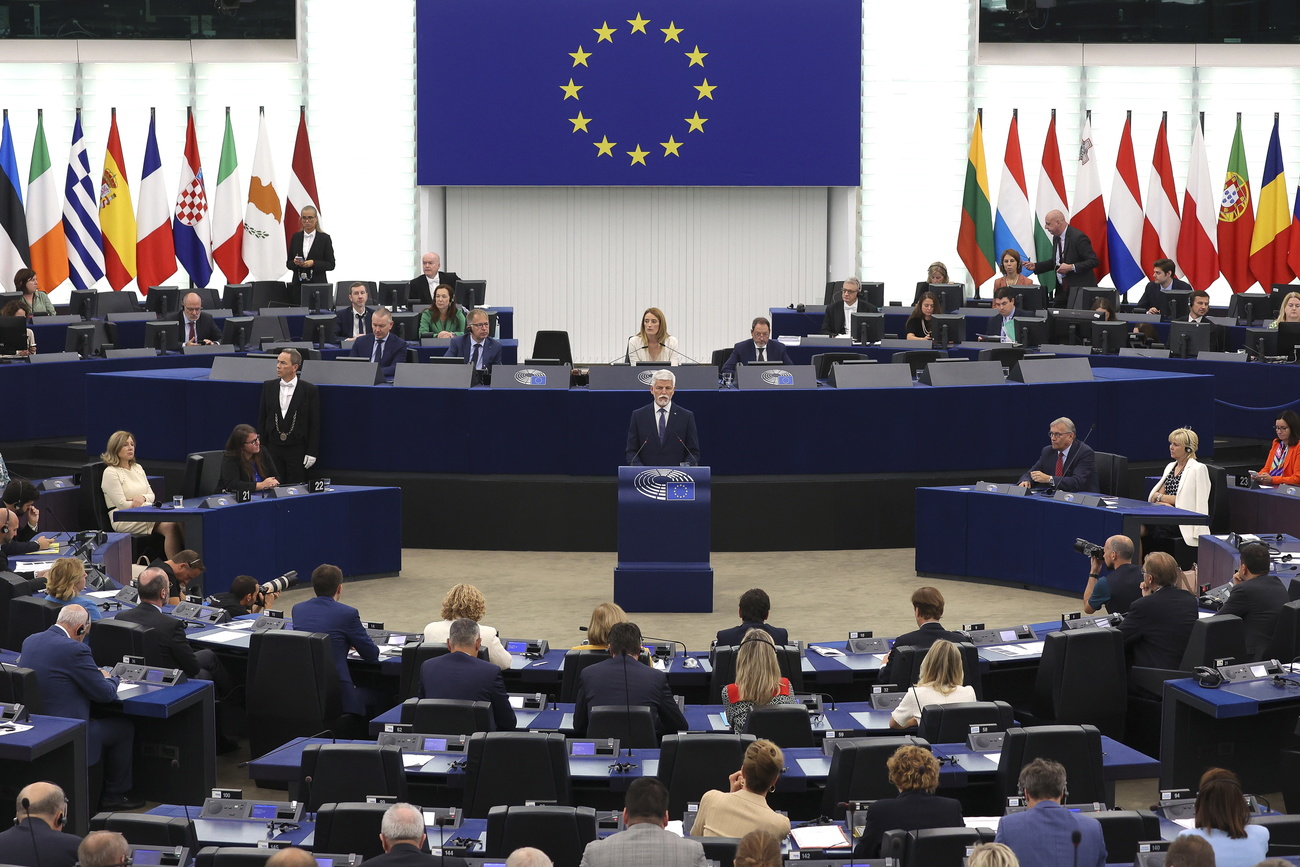Unions are unhappy with recent Swiss-EU talks

Swiss unions have expressed concerns over recent talks between Bern and Brussels. They urge the Swiss government to defend the interests of the population in negotiations with the European Union and to guarantee the protection of wages and public services.
The Swiss Trade Union (USS) and the Travail.Suisse union told reporters in Bern on Monday that they were very worried about the progress of the talks between Switzerland and the European Commission.
Following the previous draft “institutional agreement” project, a liberalisation programme is now emerging, they say.
In recent exploratory discussions, the Swiss federal authorities accepted a reduction in salary protection and a weakening of public services, the unions say.
Workers posted to Switzerland from abroad would no longer be reimbursed for expenses such as meals and accommodation at the level provided for in Switzerland. This would distort competition for Swiss companies.
+ Swiss-EU relations: Bern prepares for a vacuum
In addition, the unions denounce the complete liberalisation of the electricity market and access to the rail market for service providers such as FlixTrain for international passenger traffic. The unions urge the Federal Council to correct these mistakes.
Wage protection has long been under pressure in Switzerland, according to the USS and Travail.Suisse. Precarious jobs such as temporary work have increased. Implementation of wage protection in the cantons is inadequate, particularly in German-speaking Switzerland.
Switzerland lays out foundations for new EU deal
Companies’ use of temporary workers is being encouraged, and price underselling is rarely prosecuted. Subcontractors are jeopardising collective agreements, say the unions, and this is why the Swiss system of protection must be improved, not weakened. Employers, for their part, are refusing to engage in any constructive discussion with a view to resolving these problems, according to the unions.
“We are not opposed to new negotiations,” said USS President Pierre-Yves Maillard. But the exploratory talks held by Swiss and European diplomats and senior officials in Brussels cannot replace negotiations. “The result is insufficient in terms of wage protection and unacceptable in terms of the liberalisation of public services,” he said.
According to recent media reports, exploratory talks between Switzerland and the EU are over, but it seems that clarifications are needed on certain issues in Switzerland. Common “landing zones” have been defined as the basis for future negotiations. The results of the exploratory talks are now to be set out in a “joint declaration”.
The Federal Council will probably present a negotiating mandate in December 2023 or January 2024 and send it to the two foreign policy committees, the cantons, and the social partners for consultation. Negotiations could then begin in February or March 2024.
This news story has been written and carefully fact-checked by an external editorial team. At SWI swissinfo.ch we select the most relevant news for an international audience and use automatic translation tools such as DeepL to translate it into English. Providing you with automatically translated news gives us the time to write more in-depth articles. You can find them here.
If you want to know more about how we work, have a look here, and if you have feedback on this news story please write to english@swissinfo.ch.

In compliance with the JTI standards
More: SWI swissinfo.ch certified by the Journalism Trust Initiative






















You can find an overview of ongoing debates with our journalists here . Please join us!
If you want to start a conversation about a topic raised in this article or want to report factual errors, email us at english@swissinfo.ch.